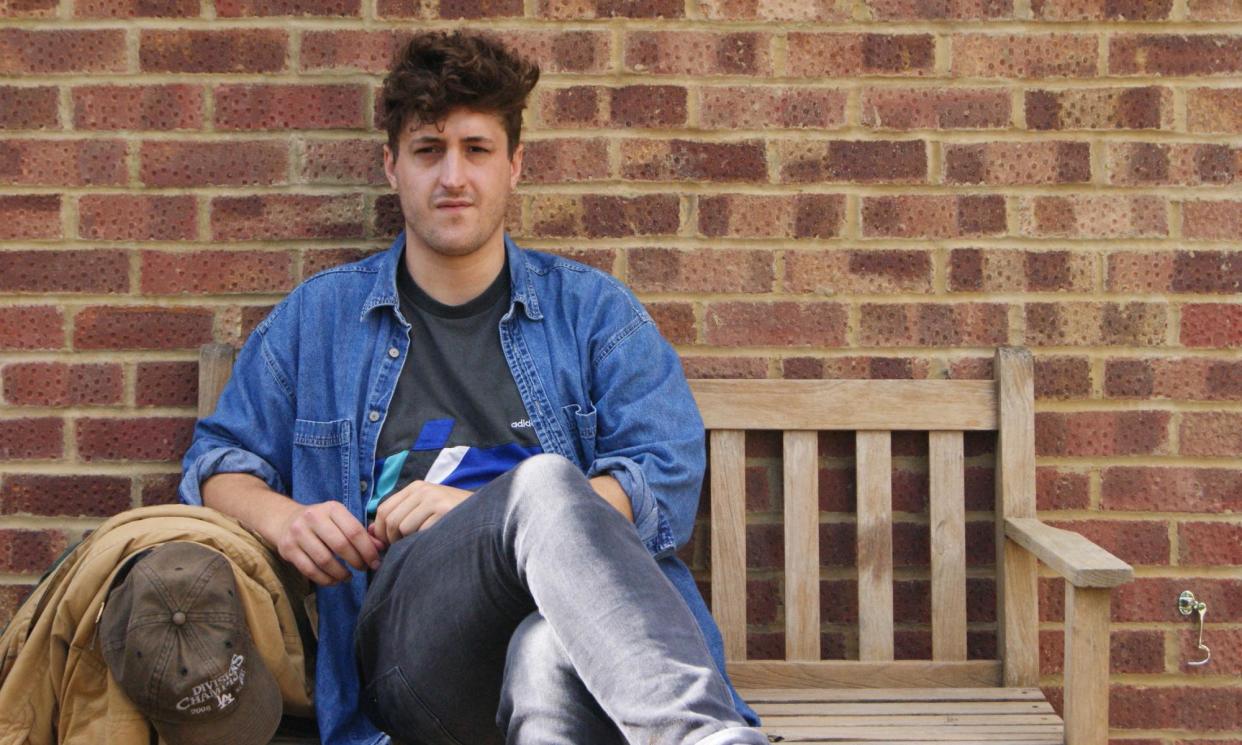Near-Life Experience by Rowland Bagnall review – the time traveller’s life

Poetry is a form of scrutiny, an inquiry that, when it succeeds, advances further than it is possible to go in prose. Rowland Bagnall’s attractively questing second collection is an investigation of consciousness. Like Virginia Woolf, he records moments of being although, unlike her, his moments are likely to be guarded and seldom ecstatic and to involve openly philosophical reckoning. He is curious about how to situate himself – and by implication us – in time and space. The recognition that time can neither hold or be held is at once an ongoing preoccupation – and a provocation. In The Hare, he lends the day a human quality: “I wake into the morning / and find unanimous spring / and the windows are pale with filtered light / and the day asks, How shall I survive myself?” Time runs out and into Bagnall’s writing and, at the same time, each piece is a moment of standing still (the day can survive in a poem).
The poems themselves seem to stand to attention in this fine, exacting and hyper-vigilant project in which he cross-examines the present, past and most often (he is in his 30s) an unsteady future.
He has an exhilarating and unpredictable sense of direction, launching himself from kitchen sink to sky and onward
Nothing Personal, the opening poem, begins: “The century surges, / shuddering on, accelerating in pursuit / of someplace rumoured up ahead”. He gives us a hint, from the start, of his determination to consider the bigger picture and not neglect historical perspective while pointing out personal insignificance in a doomed world: “Still, like the inhabitants of a city / soon to be razed by a unit of cavalry, know / that this is happening in spite of not because of you”.
Self-consciousness turns out to be a strength and he seems to have found his own frequency on which to write – plus ample bandwidth. Double Vision at the Sink begins humbly as he looks down into a white ceramic sink, engaged in the task of shelling jumbo shrimp “snapping the carapace away” and the poem then takes off without warning (we do not discover how the meal turned out). He has an exhilarating and unpredictable sense of direction, launching himself from kitchen sink to sky and onward to the Mérode Altarpiece (c1428), which he has seen earlier on shrimp-shelling day. He is especially assured writing about paintings (reassured, perhaps, by their non-verbal authority). He describes Joseph “drilling holes into a piece of wood. Behind / him is a street-scene of a European / town outdating him by something close to fourteen hundred years”. By the end of the poem, he has (without notice) boarded a plane and describes watching an onscreen flight path and the attendant vertigo: “The planet is divided into time zones / on a gridded map. I zoom in on the country / then the city we’ve just left, then the apartment, / then the kitchen where I see myself before / the sink, my fingers working neatly on the silvery-grey / shrimp”.
Bagnall proves a master Zoomer and with a great eye for closeups. Unripe Plum is a wonderful description of a stubborn, dented fruit resistant to becoming a still life (the plum is subject to time too): “It changes colour / in the light getting weaker each day – sometimes purple, / sometimes mauve, even the dark blue that Cézanne uses / to underline his apples”.
The poems in which Bagnall allows the present moment to consume him, such as Landscape Unevenness, are his most arresting (in every sense) allowing for a fusion of time, place and self: his conjuring of a muntjac leads almost to becoming one with it: “like watching myself crash / away through the bush”.
• Near-Life Experience by Rowland Bagnall is published by Carcanet (£11.99). To support the Guardian and Observer order your copy at guardianbookshop.com. Delivery charges may apply
Landscape Unevenness
In spring, when rain
that fell some days
ago has all but
evaporated, becoming purposeful humidity,
the ground gives slightly
into you, your
feet meeting the half
resistance, a landscape unevenness.
Usually this has no
impact – is largely ignorable –
unless your movement makes
it happen, where “it”
equals everything and everything
that comes to mind,
each step bringing about
the trees, engendering clouds.
Today produced a single
muntjac – or so it
appeared – initiated by a
slip, the colour of
raw clay, emitting centuries
of heat – millennia even –
like watching myself crash
away through the brush.


